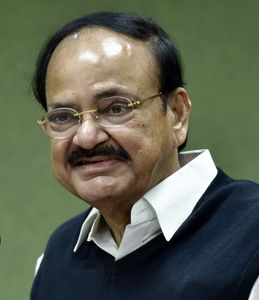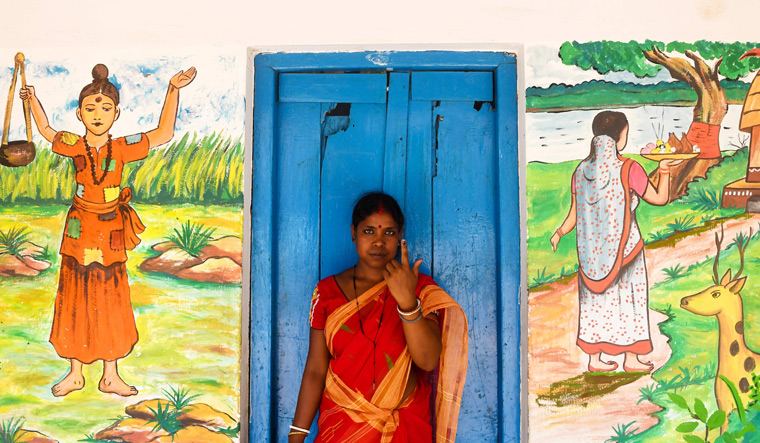As India celebrates its 75th Independence Day on August 15, it is an opportune moment to take stock of this sufficiently long journey. Listing the achievements, failures and missed opportunities is in order. It is more important to identify the ‘reset’ required to make up for the lost time, and fully tap the promised potential of our nation.
The long and hard fought freedom struggle was all for self-rule, with the people as the masters in shaping their destiny. The stated goals of this struggle were ensuring ‘free’ Indians a life with dignity, encompassing basic rights, equality, socio-economic justice and prosperity. It is time to assess the gap between this stated mission statement and the ground reality.
The birth pangs
Free India launched its journey as an illiterate, poor and iniquitous entity, against the backdrop of the painful partition. But we had a comprehensive socio-economic, political and philosophical mission statement in the form of the Constitution of India. Building a modern India out of the diverse, hierarchical and unequal socio-political and economic complexities was the main challenge. Poverty eradication, improving the quality of life and meeting the aspirations of a rising number of Indians through economic development have been the broader contours of this journey. Policy modifications and re-prioritisation, from time to time, have defined this arduous journey.
The birth pangs were further compounded by the inter- and intra-regional inequalities, ethnic and social tensions, emergence of extremist elements, regional assertions, the dynamics of global geo-politics and Cold War, and the complexities of the new global economic order. During this course, India was sucked into five wars with mixed results that brought out the country’s strengths and weaknesses into the open, and impacted the global perception about the emerging India. Contemporary challenges are even more complex than the birth pangs. This backdrop of experiences shall define the new mission and the timeframe to achieve it.
The honours
Not many were hopeful of the free, diverse, illiterate and poor India surviving as a single entity and as a democratic republic. Disproving such doubting Thomases has been the most significant achievement of the journey so far. Indians gave themselves the right of universal adult suffrage in one stroke, while many advanced nations took much longer to do so. The enthusiastic participation of people in the democratic process resulted in changing the governments eight times out of the 17 elections to the Lok Sabha so far. Beginning in 1977, governments have been changed eight times in 12 elections to the Lok Sabha. The way the people democratically revolted against the ‘Emergency’ excesses in 1977 was a forceful demonstration of how much they valued their political rights and civil freedoms.
This success of the democratic project of our country has been stellar as it gave a major boost to the democratic aspirations across the globe. In the era of the rising yearning for basic rights of the people and expression of self, India’s political survival and democratic consolidation is no mean achievement. Being the world’s largest and most vibrant democracy is a core element of our rising soft power. All Indians deserve credit for this.
Regular famines that marked the long colonial rule continued to haunt free India in the form of shortage of food grains leading to imports from the US under PL-420. It was humiliatingly called ‘living from the ship to the mouth’. Attaining self-sufficiency in food grains production and even becoming an exporter of food grains is another feather in the cap of free India.
Substantial reduction in poverty, increased literacy (including female literacy) and steady rise in average lifespan have been laudable accomplishments towards life with dignity. Steady advances in science and technology, with India being in the elite group of countries reaching the Moon and Mars, have made us proud. The revolutionary changes in the communications domain, and India emerging as a leading IT power are praiseworthy. India being a responsible nuclear power in pursuit of meeting the civil and defence requirements enhanced the country’s standing on the global stage.
Infrastructure of all kinds has acquired a new makeover with substantial improvements in road, rail, air and water connectivity. The rural road network has expanded hugely.
On the economic front, the miserly growth rate of around 3.50 per cent has been more than doubled. The last 30 years of economic reforms have opened the gates to a flood of investments. India is now among the fastest growing economies of the world, besides being the third largest economy in terms of purchasing power parity. These strides are only illustrative and not exhaustive.
The concerns
Despite the success of the democratic project, the intersection between crime, money and politics is loathsome. Caste, creed, community and region still influence political considerations and outcomes.
The increasing disruption in the functioning of our legislatures is a matter of serious concern. It has emerged as the preferred political ammunition replacing the weapon of debate. It needs to be quickly realised that this ammunition can misfire and should be given up. The occasional territorial transgressions among the three pillars of the Constitution should not be repeated.
Rising pendency of cases in the courts calls for immediate reforms and streamlining of procedures as justice delayed is justice denied. Huge governance deficit, particularly in some states, denies citizens of their due besides adversely impacting economic activities. The 73rd and the 74th amendments to the Constitution, empowering local bodies with funds, finances and functionaries, should be upheld in letter and spirit. This assumes significance as the 15th Finance Commission recommended transfer of increased share of divisible resources to states.
We are ranked very low in the Human Development Index. We have very few educational institutions among the best in the world. The burning issue of the quality of learning outcomes is still to be fixed. The pandemic has exposed the neglect of the health sector for too long. As elsewhere, the growth centred development model is accentuating inequalities, despite heavy and sometimes unsustainable direct welfare interventions by both the Central and state governments. Environment is being seriously threatened with serious consequences. Gender equality is still far, despite some improvements. Caste and communal clashes continue to blot the harmony project.
Transition from the socialist to the mixed and the markets-led models have thrown up their own set of issues from time to time. Our services-led GDP composition does not reflect realities. The farm sector still supports 65 per cent of the labour force but accounts for less than 15 per cent of the GDP. Share of manufacturing in GDP is still below the optimal even as the demand for jobs rises fast. Huge unorganised sector is a major concern. Again, these are only illustrative and not exhaustive.
Focus, intent and energy
India, in some quarters, has come to be described as a nation that has failed the expectations. Though it has consolidated as a democratic entity with several impressive strides in some domains, its much talked about emergence as a potential superpower is far from being a reality. This may be attributed to the nation’s efforts and initiatives marked by ‘fits and starts’. The much talked about economic reforms of 1991 were driven by the balance of payments crisis and came very late for the nation grappling with poverty. This applies to other sectors as well.
Our nation of about 140 crore people rejoiced when Mirabai Chanu won a silver medal on the first day of Tokyo Olympics. Our poor show on such forums reflects our lack of focus and energetic pursuit.
Any nation gets its due place in the global high table based on its economic, scientific and military prowess. It is further aided by the inherited and acquired soft power. India has been finding its voice in the global arena over the last few years, further to the new found focus and stated intent and their energetic pursuit. The people of our country voted for a majority government in the 2014 elections, after 30 long years of coalitions, and bestowed even higher numbers in 2019. This needs to be understood from the perspective of the people, about their own lives and the state of the nation. It shall define the mission for India@75.
New mission
It shall enable India to emerge as a superpower that it was expected to be, and is capable of, given the huge reservoirs of human and natural resources. The latent energies of every Indian needs to be unleashed towards this end by creating and enabling an ecosystem. Rapid and inclusive economic development needs to be realised in the quickest possible time to make up for the lost time and missed opportunities and the diffused approaches of the past. Unity of purpose and action among all the stakeholders is the key. Various deficits mentioned above shall be fixed by all the concerned collectively. Mission India@100 shall not be allowed to slip.
Mirabai, who carried firewood in the early life, lifted India to the silver medal in the Tokyo Olympics. With such steely resolve India can achieve this new mission.




